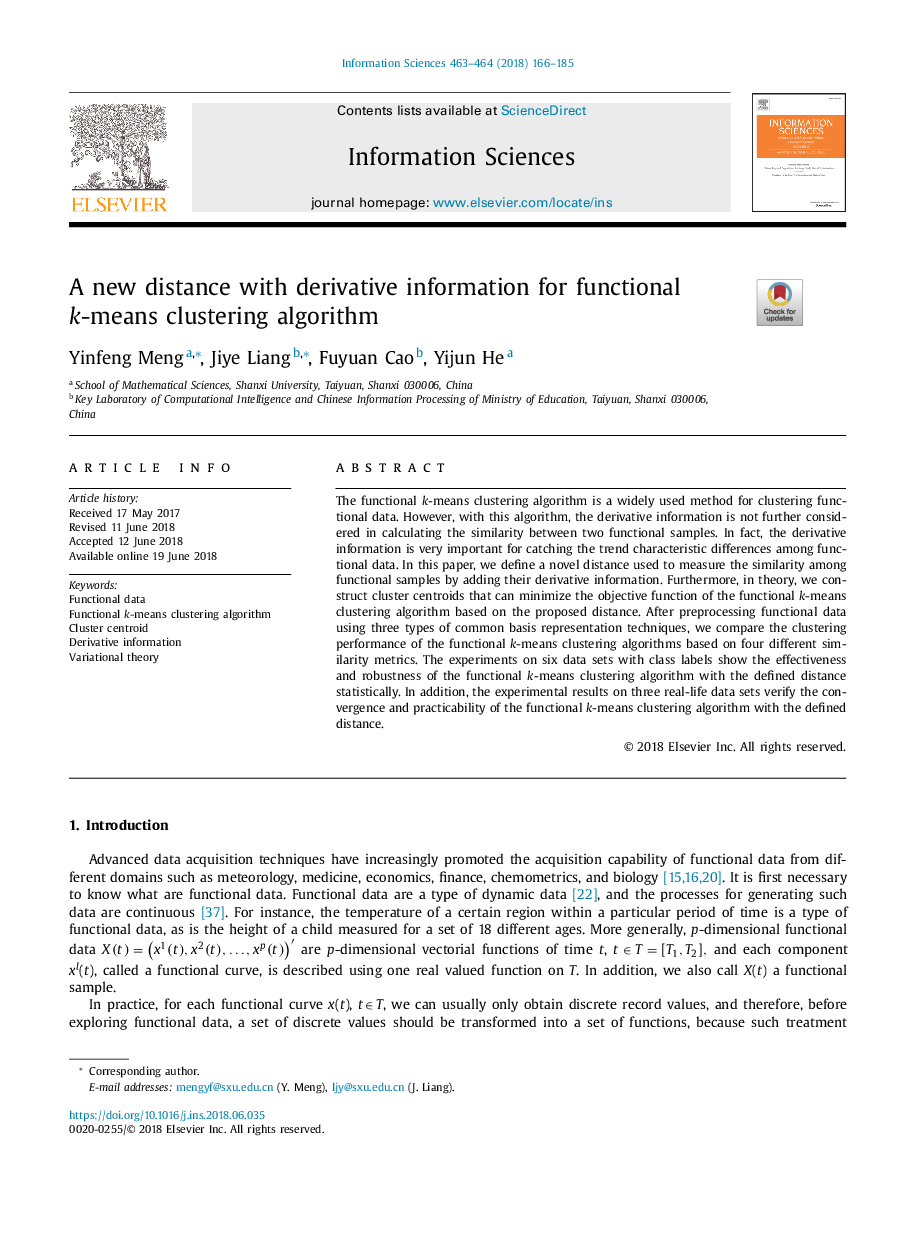| Article ID | Journal | Published Year | Pages | File Type |
|---|---|---|---|---|
| 6856212 | Information Sciences | 2018 | 20 Pages |
Abstract
The functional k-means clustering algorithm is a widely used method for clustering functional data. However, with this algorithm, the derivative information is not further considered in calculating the similarity between two functional samples. In fact, the derivative information is very important for catching the trend characteristic differences among functional data. In this paper, we define a novel distance used to measure the similarity among functional samples by adding their derivative information. Furthermore, in theory, we construct cluster centroids that can minimize the objective function of the functional k-means clustering algorithm based on the proposed distance. After preprocessing functional data using three types of common basis representation techniques, we compare the clustering performance of the functional k-means clustering algorithms based on four different similarity metrics. The experiments on six data sets with class labels show the effectiveness and robustness of the functional k-means clustering algorithm with the defined distance statistically. In addition, the experimental results on three real-life data sets verify the convergence and practicability of the functional k-means clustering algorithm with the defined distance.
Keywords
Related Topics
Physical Sciences and Engineering
Computer Science
Artificial Intelligence
Authors
Yinfeng Meng, Jiye Liang, Fuyuan Cao, Yijun He,
